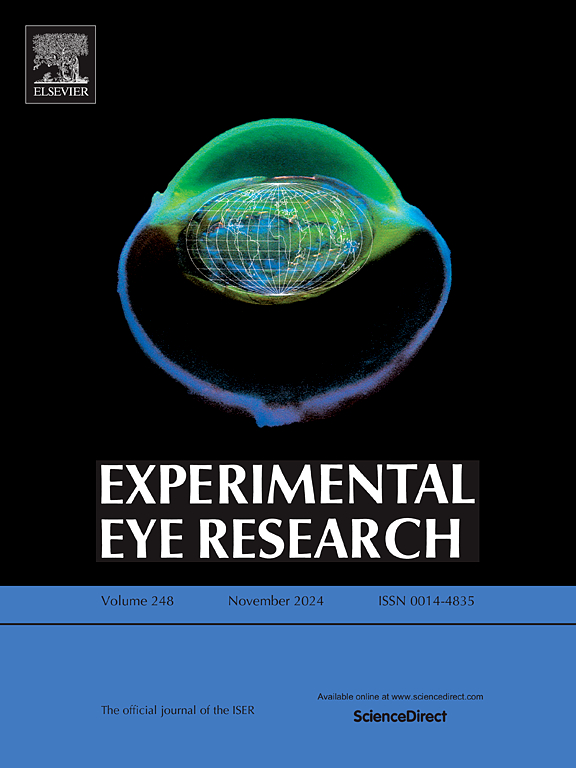Recombinant adeno-associated virus with anti-tumor necrosis factor-alpha in an experimental autoimmune uveitis model
IF 3
2区 医学
Q1 OPHTHALMOLOGY
引用次数: 0
Abstract
Uveitis treatment is associated with side effects and inconsistent outcomes. Existing treatments often fail to provide targeted and sustained relief; thus, novel therapeutic approaches are needed. Among these, gene therapy using adeno-associated virus (AAV) vectors target specific retinal cells, show low immunogenicity, and demonstrate sustained gene expression, making it a potential advancement in uveitis treatment. Therefore, we utilized a AAV2 system encapsulating encoded anti-tumor necrosis factor-alpha (TNF-α) antibody to assess its efficacy in the treatment of experimental autoimmune uveitis (EAU) in mice. Compared with the AAV2-GFP group, AAV2-ADA-injected mice showed significantly reduced clinical, OCT, and histopathological scores in EAU with lower percentages of Th1 and Th17 cells in the eyes and higher percentages of Treg cells in the draining lymph nodes (LN). This study demonstrated the safety and effects of AAV2-ADA in EAU treatment, providing a promising therapeutic strategy for uveitis.
求助全文
约1分钟内获得全文
求助全文
来源期刊

Experimental eye research
医学-眼科学
CiteScore
6.80
自引率
5.90%
发文量
323
审稿时长
66 days
期刊介绍:
The primary goal of Experimental Eye Research is to publish original research papers on all aspects of experimental biology of the eye and ocular tissues that seek to define the mechanisms of normal function and/or disease. Studies of ocular tissues that encompass the disciplines of cell biology, developmental biology, genetics, molecular biology, physiology, biochemistry, biophysics, immunology or microbiology are most welcomed. Manuscripts that are purely clinical or in a surgical area of ophthalmology are not appropriate for submission to Experimental Eye Research and if received will be returned without review.
 求助内容:
求助内容: 应助结果提醒方式:
应助结果提醒方式:


